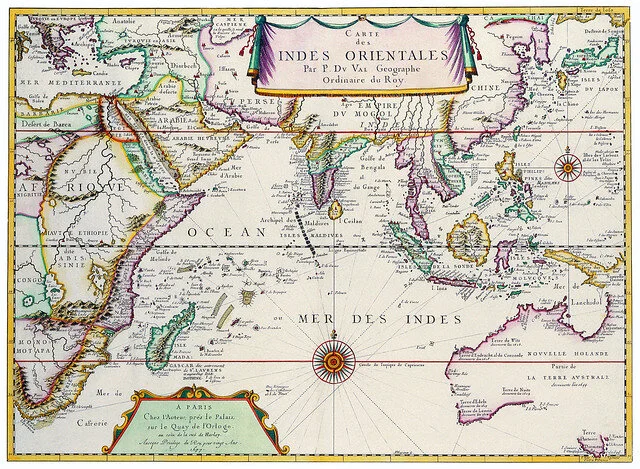Origin Story: Appellations and the Future of Craft Cannabis in Western Mass
What is Appellation?
An appellation is a certified designation identifying the geographical origin of a product and the culture underlying it’s production. Appellation designations offer protection and promotion for regional and local businesses, by preventing misappropriation and misuse of regional names, and they promote consumer confidence in local products by establishing criteria and processes for certification.
Many countries have well-established appellation systems for products like wine (Champagne), cheese (Gruyere), and even meats, fruit and vegetables.
The fundamental idea in any appellation system is the concept of terroir, which teaches that the taste, smell, and flavor of an agricultural product is created by the entirety of the natural environment in which it is produced. This includes not only the soil, water, vegetation, insects, topography and climate, but also the regional cultural practices employed to create the product.
How Does Appellation Apply to Cannabis?
Like any other crop, the characteristics of a cannabis plant and flower are partly determined by constituents of the soil, the presence of pollutants or contaminants, the quality of the water and sunlight, the temperature and humidity, and the cultivation techniques used. The same strain grown outdoors in soil and sunshine in Humbodlt County, California, will produce a different final product then that grown indoors, in a sterile, hydroponic, artificial light environment.
Why Should Massachusetts Care About the Origin of Cannabis?
Protected designations of origin are an important tool for ensuring the success of small, local, craft cannabis growers. It provides a proven method of distinguishing a local artisan product from a mass-produced lower quality competitor. And it can add significant value to sun-grown cannabis in a New England climate that only permits a limited growing season.
Micro-businesses, Craft Coops, Social Equity and Economic Empowerment licensees can all benefit from appellation certification and can use the designation to remain competitive with Big Corporate Cannabis.
Additionally, federal legalization and interstate commerce of cannabis is around the corner. Massachusetts growers should be thinking about what it will mean to compete against West Coast growers (particularly growers from the Emerald Triangle and Southern Oregon) who have much more favorable outdoor conditions, and thus lower costs and better quality. Establishing a reputation for craft Western Mass weed as being high-quality, grown by local farmers, and having unique characteristics (terrior) will keep local cannabis competitive with the Humboldt and Mendocino brands.
Is Anybody Already Designating the Origin of Cannabis?
Yes! California is well into the process of developing an appellation system called the CalCannabis Appellations Project. The local growers associations in Northern California are simultaneously working on their own certifications (i.e., the Mendocino Appellations Project and the Humboldt County Growers Alliance). Their work is supported by legislation requiring the California Food and Drug Administration to allow “county of origin” appellations, and creating criteria of standards, practices and varietals/strains for the different regions. The rulemaking process will likely commence by the end of 2019 and appellations regulations established before 2021.
These standards may include requirements for sun-grown and organic, as well as factors like water conservation, regenerative land use practices, and trimming by hand. Due to the focus on local, participation by local cultivators is crucial in the development of the certification standards. Developing these standards also presents an opportunity for the stakeholders to embody the industry with the values and the practices they desire and that will promote sustainability and long-term success for all the players.
Can This Work in Western Massachusetts?
Absolutely. Ideally, local farmers/growers would generate the specific rules and standards, and the state would enforce the certification system. Western Mass farmers could thus develop their own identity and brand based on the unique characteristics of the Pioneer Valley and the Berkshires. Western Mass consumers and visitors are already familiar with the small towns, small farms, farmer markets and roadside stands that give the region its rural agricultural character. This already-established identity readily lends itself to a cannabis appellation system. Further, Massachusetts maintains some of the strictest pesticide regulations for cannabis of any state. This might be leveraged into a certification that features some of the cleanest organic cannabis in the country. Ultimately, it should up to the farmers to decide what defines their region and their flower.
Canna-Tourism
Appellations go hand-in-hand with tourism. Consumers who enjoy the product want to see how and where it’s grown. This is why Napa and Sonoma Valley wine tours are so popular and profitable. Visitors will pay a premium to see where the grapes are grown and taste multiple varieties right there on the land. Western Mass farms already know how to do this with pick-your-own offers, strawberry festivals, peach festivals, apple festivals, pumpkin festivals, etc. Once the regulations permit such things, there will be demand for tours and tastings on craft cannabis farms. The development of regional standards and designations of origins will be essential to this kind of locally-focused canna-tourism.
